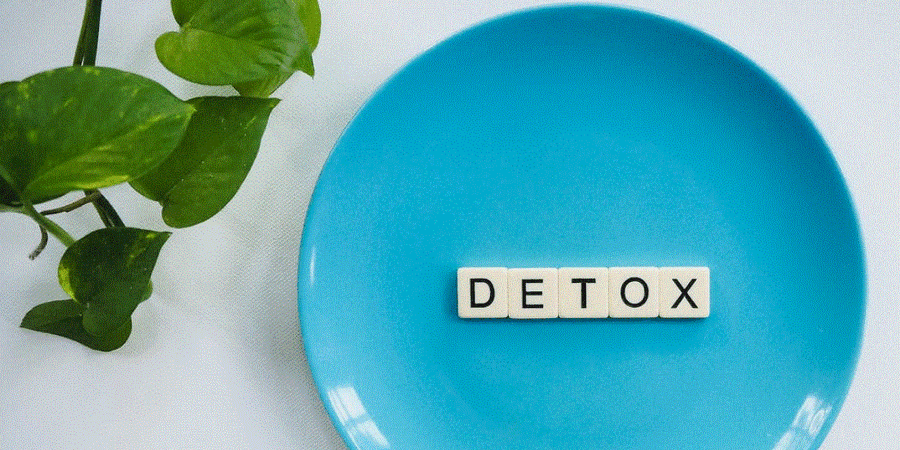Philadelphia, PA - When summer is around the corner, and you need to look fantastic in a bikini, a 7-day detox always seems like a smart idea. But before you join a trendy juicing diet that promises to detoxify your body and melt fat, there's something you need to understand. You can't detox your body; it does that on its own. Furthermore, any results you get from a detox diet won't last long.
The good news is that you may think of the detox as a sane approach to restructure your diet and begin eating healthier meals that will help you lose weight. Here is how this new way of thinking works.
What Is A Detox and Why Doesn't It Work?
A detox is a short-term diet that supposedly rids the body of harmful substances and chemicals. While it can be effective at eliminating alcohol and drugs, there's no real evidence to suggest that it works for "toxins" from your food. This means that you can't actually remove any toxins from your body by following a 7-day detox diet; instead, you're just losing water weight (and probably muscle mass if you extend your diet for a long period).
Your body has a robust detoxification system that has evolved to fight off toxins that enter your body, including chemicals from food.
Your liver filters your blood and eliminates harmful substances, while the kidneys filter the waste in the urine. Your respiratory, lymphatic, and digestive systems all partake in this process to ensure you get rid of wastes.
What To Do Instead?
Instead of jumping into a week-long cleanse full of juices and smoothies, focus on transitioning to clean eating over the course of several weeks. Some ways to start breaking old habits include:
- Switch out one type of junk food for another healthier option. For example, replace fried potato chips with baked chips.
- Create a list of all the unhealthy foods you eat on a regular basis and remove them from your diet. From there, focus on slowly replacing these old favorites with new healthier options one at a time so that it's easier to slowly transition into cleaner eating habits over time.
- Take note of how you feel after you eat certain foods; do you have more energy or tend to crash an hour or two after eating? What about things like mood swings, bloating, gas pains, constipation, etc.? If you pay attention to what happens when it comes to eating certain food items, this can help guide your decisions in the future.
What Is Clean Eating?
Clean eating is a lifestyle that focuses on eating whole, unprocessed foods to fuel your body rather than empty carbs and sugars. It's considered clean since it doesn't have any additives or chemicals but instead has ingredients found in nature. While the food you eat should be nutrient-dense, natural sugars are okay if they occur naturally in a given fruit or vegetable.
Some foods that you'll be eating on the 7-day detox as part of your transition to clean eating include:
Whole Grains
Whole grains are foods that have the bran, germ, and endosperm intact. This means that they contain all three parts of the grain kernel, which provides protein, minerals, fiber, B-vitamins, healthy fats, antioxidants, and phytochemicals.
Vegetables
All vegetables are excellent sources of fiber and nutrients for your body. Keep in mind that vegetables not only provide vitamins for energy but also help you maintain a healthy weight since they don't contain many calories yet are high in water content to keep you full.
Fruits
While fruit is made up primarily of natural sugars (fructose), it's also filled with phytonutrients that promote health benefits like protecting your heart, eyes, and digestive system.
Healthy Fats & Protein
Both healthy fats and protein are important aspects of your diet since they can help you stay full for longer periods of time while also providing the nutrients needed to maintain a healthy body.
Healthy fat options include:
- Avocado
- Olive Oil
- Nuts
- Seeds
- Coconut Oil
Protein sources include:
- Lean meats like chicken or turkey breast; fish like tilapia or salmon
- Beans and legumes; low-fat dairy products like Greek yogurt; eggs; quinoa; lentils (and other dried pulses)
- Nuts and seeds (peanuts, cashews, almonds)
Foods To Avoid on the 7-Day Detox Diet
The 7-Day Detox diet doesn't allow you to eat the following:
- Refined white sugar and products containing it, such as cookies, cakes, candy, or ice cream
- Artificial sweeteners like aspartame (such as Equal), sorbitol, acesulfame potassium (such as Sweet One), sucralose (Splenda)
- Foods with artificial colors/flavors
- Trans fats from fried foods or commercial baked goods
The Bottom Line
The 7-Day Cleanse is a fad diet that doesn't work. The best way to detox your body is to replace junk food with healthier alternatives over time, start focusing on clean eating habits, and pay attention to how you feel after certain foods are eaten.
DISCLAIMER: This article is intended for general informational purposes only and does not address individual circumstances. It is not a substitute for professional advice or help and should not be relied on to make decisions of any kind. Any action you take upon the information presented in this article is strictly at your own risk and responsibility!


